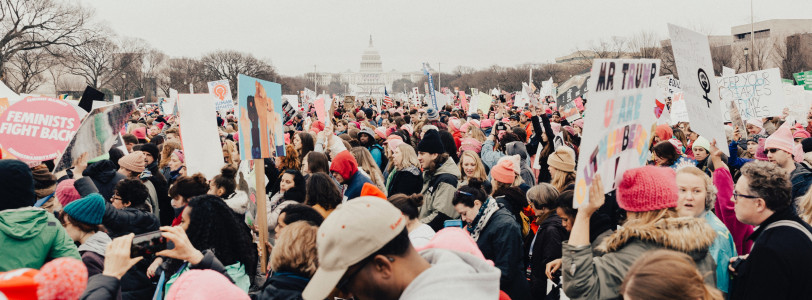Climate change does not affect everyone equally; it disproportionately impacts communities of color and low income communities in the UK and across the entire globe. A paper written by the UN’s Department of Economic and Social Affairs concluded with available evidence that ‘initial inequality causes the disadvantaged groups to suffer disproportionately from the adverse effects of climate change’. Indigenous people, the working class, black, brown, queer, trans and disabled people are often the first to face poor air quality, hunger, public health crises, drought, floods and displacement.
The truth of the matter is that for over 500 years, colonial powers removed large quantities of natural resources from their colonies and exploited these resources to meet the demand of their home countries. Europeans hunted species to death, destroyed native wildlife, and displaced indigenous peoples. This system of extravism – the process of extracting natural resources from the Earth to sell – used racism, sexism, classism and other systems of oppression to its advantage and has shaped the conditions we find ourselves in today.
Eco-facism
As the UK started to lockdown, there was an influx of social media clips showing animals re-entering the urban areas and ‘unpolluted’ canals, apparently showing that the silver lining of the pandemic is the benefits to the environment; that somehow this current lockdown is solving climate change. This leads directly to a growing narrative suggesting that ‘humans are the virus’. But solving the climate crisis is not that simple and these beliefs often feed into a dangerous racist ideology — eco-facism.
In simple terms, eco-facism is the belief that climate change is caused by overpopulation and immigration. A more extreme version of eco-facism is the twisted ‘survival of the fittest’ view; seeing this pandemic as nature’s way of ‘resetting’. This is particularly harmful because it negates the current struggles of many on the planet and undermines the fact that the ‘fittest’ are just those that have socioeconomic or various other privileges. The climate crisis is a complex and nuanced problem that won’t be solved with a reduction in the number of people on the Earth. Carbon emissions are often touted as having the largest negative impact on the environment, but the facts show that the countries with the highest levels of population growth have the smallest carbon emissions. An Oxfam report concluded that the world’s richest 10% produce over half of carbon emissions while the poorest 3.5 billion account for just a tenth of carbon emissions.
Environmental racism
We don’t all contribute equally to the changing climate, and we aren’t affected equally either. The increasing extreme weather events caused by climate change are far more likely to affect countries in the Global South. For example, many places in the region don’t have early warning systems, so local people aren’t aware that extreme weather is coming. Instead of focussing on the population levels of the Global South, it’s more important to concentrate on the unsustainable overconsumption of the Global North.
The Covid-19 pandemic exacerbates the effects of the climate crisis already felt by people on the frontlines of climate change. These people were already dying at an increased rate of four people a week because of rising global demand for extractive industries, such as mining and oil/gas industries. With the effect of coronavirus factored in, it is even harder to imagine the struggles of front-line communities, especially Indigenous groups, who are currently losing the oldest, most knowledgeable and integral members of their communities.
In the case of America, a 2016 Environmental International study found higher exposure to particulate matter in certain communities of color, due to the area in which they live. Particulate matter is a combination of solid and liquid particles in the air, and many of which can be hazardous to health – affecting both your heart and lungs. In addition to poorer air quality, these communities face further health disparities as a result of systemic medical racism. Many of these same communities are in low-income jobs, forcing them to live very close to power plants or fracking waste sites, where house prices are cheap. These sites can mean reduced water quality and links to health problems such as high-risk pregnancies, migraine headaches, and fatigue.
The systems of oppression that work against these communities are the same systems that perpetuate environmental injustice.
Anti-racism in the UK climate movement
The interlinked struggles of the climate crisis and the anti-racist movement is not always reflected in the conversations and strategies of climate movements in the UK. For example, a key strategy used by Extinction Rebellion is orchestrating a large number of arrests at protests. This is a common direct-action technique, however for many marginalized communities, violent arrest and police brutality are a harsh reality. While White, middle-class environmentalists don’t need to fear brutality or a disproportionate punishment, for other races it is a fear that can exclude them from making their voice heard.
The structural inequalities faced by people of colour means that protest is far more dangerous for them. We’ve all got privileges to think about but with the growing public consciousness about both the climate and anti-racism, we’ve got to remember that we can’t have a colourblind approach to the climate. There is a privilege in being able to speak out about these issues without fear of arrest and for people in the Global South, fear of death.
There has got to be an acknowledgment of climate change’s roots in inequality and colonialism. At the same time, there needs to be a recognition that protesting on the streets comes only with a certain amount of privilege. We can lead the way to creating transformative change only with hard work and dialogue about these issues.
Solidarity
We’ve got to stand in solidarity with all of the people who are living under these systems of oppression. I think this quote by Lilla Watson, an Indigenous Australian activist encapsulates solidarity well:
'If you have come here to help me you are wasting your time, but if you have come because your liberation is bound up with mine, then let us work together.’
For me, solidarity is more than a white saviour-esque notion of patronizingly helping someone — it’s putting in the hard work and working together for collective liberation.
Growth and mutual learning is the only way forward to creating a truly intersectional movement. If this doesn’t happen, the UK's climate movement will continue to perpetuate the oppression, erasure and brutalization of marginalized communities that has its root colonisation. In order to envision a future in which we will all be liberated from the root causes of the climate crisis, the climate movement needs to reflect on how to truly decolonise and be anti-racist.










I love this, it's forced me to look at aspects of climate change I've never scrutinised properly before. Looking forward to more!